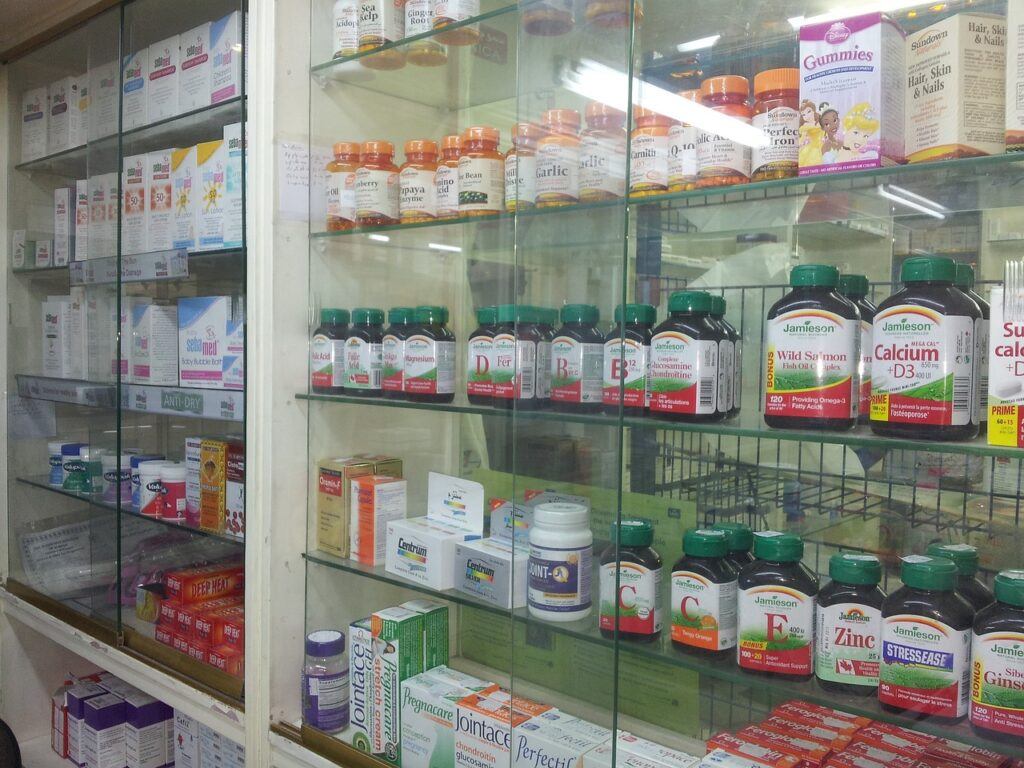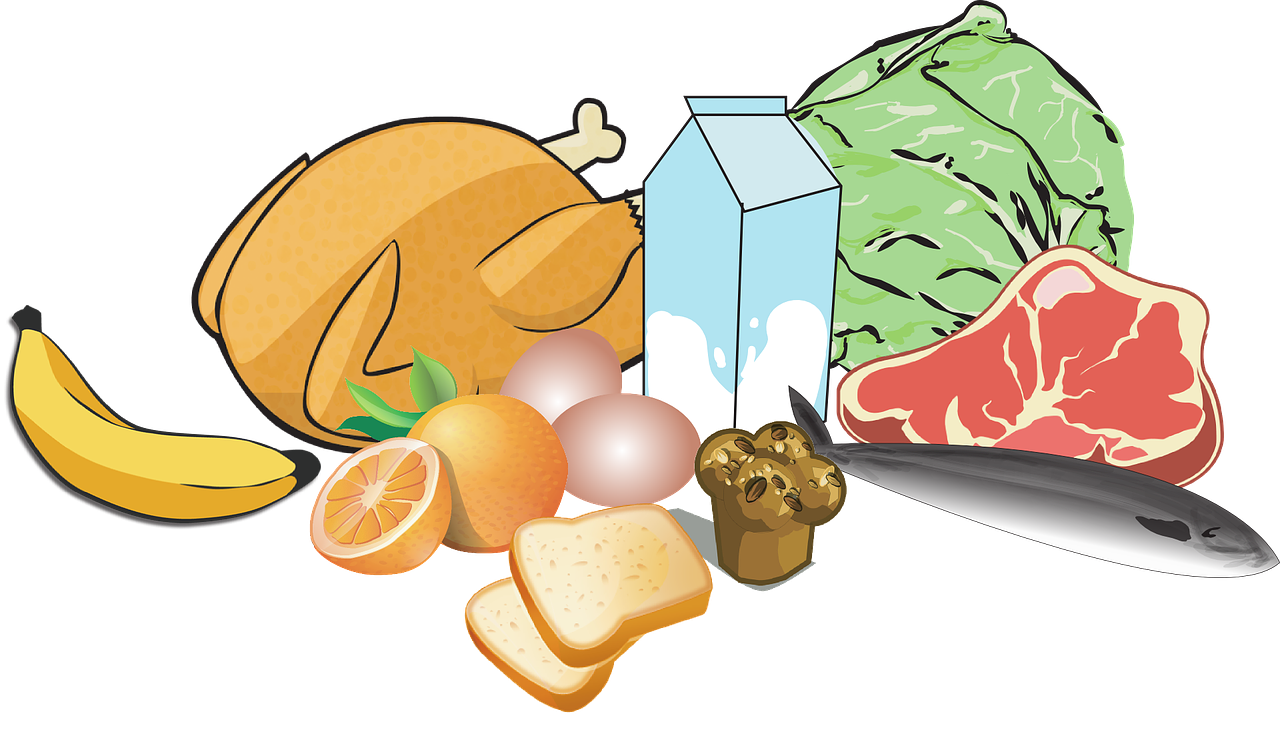What Vitamins Are Good for Menopause Joint Pain: Essential Nutrients Unveiled
Navigating through menopause can bring about a host of changes, including the discomfort of joint pain. Many women experience increased joint and muscle pain during this transitional phase, which can significantly impact daily life. Which brings the question of what vitamins are good for menopause joint pain.

Understanding the role of vitamins in managing these symptoms is crucial. Certain vitamins are hailed for their ability to alleviate joint pain associated with menopause, integrating them into your diet may provide much-needed relief.
Recognizing that menopause is a natural stage in life that can alter the body’s requirements for nutrients is the first step toward mitigating discomfort.
By adjusting your diet and supplement intake, you can specifically target joint pain. Vitamins that support bone health and reduce inflammation, such as Vitamin D and Omega-3 fatty acids, are particularly beneficial during menopause.
Key Takeaways
- Diet and supplementation adjustments targeting joint pain can be beneficial.
- Essential vitamins may help manage menopause-related joint discomfort.
- Lifestyle modifications can support overall joint health during menopause.
- The production of oestrogen and progesterone also decreases and causes most of the symptoms of menopause, including joint pain osteoporosis , and osteoarthritis. Source: nirvahealth.com
- When the imbalance is corrected, joint pain and other menopausal symptoms, such as vaginal dryness or high blood pressure, usually resolve on their own.
- Vitamin A is necessary for healthy bones, however, taking vitamin A during menopause is controversial. Source: healthline.com
Exploring the connection between menopause and joint pain.
During menopause, you might find your joints are more than just a nuisance; they can really start to hurt. This is because as you approach menopause, the levels of the female hormones estrogen and progesterone in your body decrease. These hormones are like your body’s natural painkillers, keeping inflammation under control and making your pain sensors less sensitive.
So, what does this mean for your joints? Well, without enough of these hormones, you might experience:
- Stiffness: Particularly in the morning or after sitting for long periods.
- Discomfort: It can range from a dull ache to a sharp, stabbing pain.
- Swelling: Your joints might feel a bit puffy or swollen, especially at the end of the day.
Common areas affected by joint pain during menopause include:
- Hands
- Knees
- Hips
- Spine
It’s important to know that this joint pain isn’t just ‘in your head’ – it’s a genuine physical change that’s happening in your body. If you’re feeling like your joints have started their own little protest, consider reading about how joint pain in menopausal women can be managed and treated for some relief strategies.
Remember, you’re not alone in this. Many women experience musculoskeletal pain as they go through perimenopause and beyond. So, don’t hesitate to seek out information on understanding and overcoming menopause-related musculoskeletal pain. Your journey to managing this pain can start with gathering the right information and finding a supportive healthcare provider.
Essential Vitamins for Joint Pain Relief
When dealing with menopause-related joint pain, certain vitamins can provide relief by maintaining bone health and reducing inflammation. Here’s how you can use vitamins to help ease your discomfort.
Vitamin D
Your body needs Vitamin D to absorb calcium effectively, which is essential for bone health. A deficiency in Vitamin D levels can lead to weaker bones and increased joint pain. You can find Vitamin D supplements that may also reduce menopause-related joint pain.
Vitamin E
Vitamin E is known for its antioxidant properties, which help fight inflammation in your body. Incorporating Vitamin E into your diet could assist in reducing the pain and stiffness associated with joint issues during menopause.
Vitamin C
Important for collagen production, Vitamin C supports joint health by maintaining the integrity of your cartilage. This can help alleviate the discomfort of joint pain during menopause. Ensure you include fruits and vegetables high in Vitamin C to aid in joint repair and overall skin health.
Vitamin K
Vitamin K plays a crucial role in bone metabolism and the prevention of bone loss. By maintaining bone strength, Vitamin K can be beneficial in mitigating joint pain associated with menopause. Leafy greens are a great source of this vitamin.
B Vitamins
Several B vitamins, particularly B6, B9 (folate), and B12, are known for their role in reducing levels of homocysteine in the blood, which, if elevated, may be linked to increased inflammation and joint pain. A B complex supplement might be a valuable addition to your diet during menopause to help manage joint discomfort.
Dietary Considerations During Menopause
As you navigate through menopause, paying special attention to your diet can make a big difference in managing joint pain and quality of life. Certain foods can help reduce inflammation, while others support bone health, all of which is paramount as your body changes.
One advantage of maintaining a healthy diet during hormonal changes is the potential to prevent weight gain, a common menopause symptom.
Anti-Inflammatory Foods
Incorporate a diet rich in anti-inflammatory foods like salmon which is packed with omega-3 fatty acids, known to decrease inflammation. Foods like berries, which are rich in antioxidants, can also help. Include these regularly in your meals:
- Fatty Fish
- Berries
- Leafy greens
- Nuts and seeds
- Olive oil
Calcium-Rich Foods
Your bones need calcium to stay strong, especially during menopause. Ensure you’re consuming enough calcium-rich foods to maintain bone density and reduce the risk of osteoporosis. Some great sources include:
- Dairy products like milk, cheese, and yogurt
- Broccoli and leafy green vegetables
- Tofu and calcium-fortified foods
Calcium Supplements
Recent research has indicated that the risks of taking calcium supplements may outweigh the benefits for bone health, leading to a change in recommendations regarding their routine use.
Calcium supplements have been shown to potentially increase the risk of cardiovascular events in postmenopausal women. Black cohosh and evening primrose oil were omitted and should be avoided.
Don’t forget to pair these with foods high in Vitamin D like eggs or fortified cereals to help with calcium absorption.
Magnesium Supplements
Magnesium supplements can aid in supporting your sleep cycle by contributing to the regulation of melatonin, which assists in helping your brain to relax for sleep.
Magnesium glycinate is often recommended for promoting better sleep due to its bonding with the amino acid glycine, which is known to enhance sleep quality. Pure Encapsulations is a reputable supplement brand known for its thorough testing of raw materials.
Implementing healthy sleep habits, such as avoiding screens before bedtime and maintaining a consistent sleep schedule, can help improve sleep. It can be challenging to determine the impact of aging versus menopause on weight gain.
Hydration and Menopause
Staying properly hydrated is critical as it can impact every system in your body, including the health of your joints. Aim for at least 8 glasses of water per day, and consider adding hydrating foods like cucumbers and watermelon to your diet.
Lifestyle Changes to Alleviate Joint Pain
In the midst of menopause, joint pain can be a real hassle. The connective tissue in the joint begins to break down. But tweaking your lifestyle might be just the ticket to ease those aches. Let’s dive into some specific changes that can make a big difference.
Regular Exercise
Engaging in regular exercise is a game changer for reducing menopause-related joint pain. You don’t have to run marathons—just aim for a mix of:
- Aerobic activities like brisk walking or swimming to improve overall fitness.
- Strength training to build muscle support around your joints.
- Flexibility exercises such as yoga or stretching to maintain joint range of motion.
Weight Management
During menopause, those extra pounds can put a strain on your joints, increasing pain. That’s why weight management is crucial. Consider:
- Following a healthy diet full of fruits, veggies, and lean proteins.
- Keeping track of your calorie intake to support gradual weight loss.
Stress Reduction Techniques
Stress can aggravate joint pain, so finding ways to chill out is key. Try stress reduction techniques such as:
- Mindfulness meditation to help you stay in the present and relax.
- Deep breathing exercises to lower stress hormone levels.
- Engaging in hobbies that bring you joy and take your mind off discomfort.
Supplements Beyond Vitamins
When tackling menopause joint pain, vitamins are just the tip of the iceberg. Here’s where you might need to look beyond the vitamin aisle for additional relief.
Omega-3 Fatty Acids
Your joints need a good dose of healthy fats, and Omega-3 fatty acids are like the VIPs in the club of joint health. Not only do they fight inflammation, but they’re also essential for maintaining cell structure in your joints.
Glucosamine and Chondroitin
Think of Glucosamine and Chondroitin as the dynamic duo for cartilage formation and repair. They can be particularly helpful if you’re feeling the creaks and aches in your joints that often come with menopause.
Herbal Remedies
Lastly, let’s talk about mother nature’s medicine cabinet – herbal remedies. Ingredients like turmeric, ginger, and evening primrose oil get big props for their anti-inflammatory properties that might just soothe your joint discomfort.
Medical Treatments for Menopause Joint Pain
When you’re going through menopause, joint pain can be a common symptom, but medical treatments are available to help manage it. Let’s look at how hormone replacement therapy and pain relief medications can offer you relief.
Hormone Replacement Therapy (HRT)
HRT can be a game-changer for menopause-related joint pain. It works by replenishing hormones that drop during menopause, potentially easing inflammation and pain in your joints. Before considering HRT, you should discuss the benefits and risks with your healthcare provider, as it’s not suitable for everyone and may depend on your personal and family medical history.
Pain Relief Medication
Over-the-counter (OTC) pain relievers, like ibuprofen and naproxen, may alleviate the discomfort you’re experiencing. These nonsteroidal anti-inflammatory drugs (NSAIDs) work by reducing inflammation. Sometimes, your doctor might suggest prescription pain relievers if your symptoms are more severe. Remember to follow the recommended dosages to avoid possible side effects.
When to See a Doctor
Dealing with joint pain during menopause can be quite a hassle, but there are times when you should really consider booking an appointment with your doctor. If you’re experiencing persistent discomfort or your pain is becoming more than just an occasional nuisance, it’s time to get a professional opinion.
Here are a few specific signs that signal a doctor’s visit:
- Severe Pain: If your joint pain is severe enough to disrupt your daily activities or keeps you awake at night, better ring up the doc.
- Swelling, Redness, or Warmth: If you notice any of these around your joints, it could indicate inflammation or another underlying issue.
- New or Unusual Symptoms: Joint pain during menopause is one thing, but if you’re experiencing new symptoms like numbness or tingling, it’s worth a check-up.
- No Relief from Over-the-Counter Aids: When the usual stuff like anti-inflammatory gels or pain relievers isn’t cutting it, your doctor might have alternative solutions.
- Impact on Mental Health: Chronic pain can take a toll on your mental well-being. If you’re feeling down or stressed because of it, don’t hesitate to seek help.
Remember, you know your body best. If something feels off, or you just want peace of mind, get in touch with your healthcare provider. No need for second guesses when it comes to your health!
Frequently Asked Questions
You’ve got questions and we’ve got answers. This section tackles FAQs about managing joint pain during menopause using vitamins and other supplements.
How can I alleviate joint pain associated with menopause?
Your diet plays a significant role in alleviating joint pain. Incorporating calcium and vitamin D can strengthen your bones while omega-3 fatty acids from fish oil supplements may reduce inflammation.
Which natural treatments are effective for menopausal joint discomfort?
Natural treatments like engaging in regular exercise, maintaining a healthy weight, and utilizing acupuncture can offer relief. Also, mindfulness practices such as yoga and meditation can help manage stress, which may exacerbate joint pain.
Are there any vitamins specifically beneficial for joint pain during menopause?
Yes, vitamin E is known for its anti-inflammatory properties, making it beneficial for joint pain. Also, Vitamin B complex can help improve nerve function which may indirectly benefit joint health.
What supplements are recommended for managing menopause-related muscle pain?
Supplements like magnesium glycinate may be particularly helpful for muscle pain as it aids in muscle relaxation and reduces cramping, which can be common in menopause.
Can glucosamine help with joint pain caused by menopause?
Glucosamine is often used to support joint health, and some studies suggest it may help to maintain joint cartilage and alleviate pain, making it worth considering for menopause-related joint pain.
What are the best methods to prevent joint pain during menopause?
To prevent joint pain, keep active with low-impact exercises such as swimming or cycling. Adopting a balanced diet, staying hydrated, and possibly using supplements like omega-3 fatty acids can also contribute to joint health.



